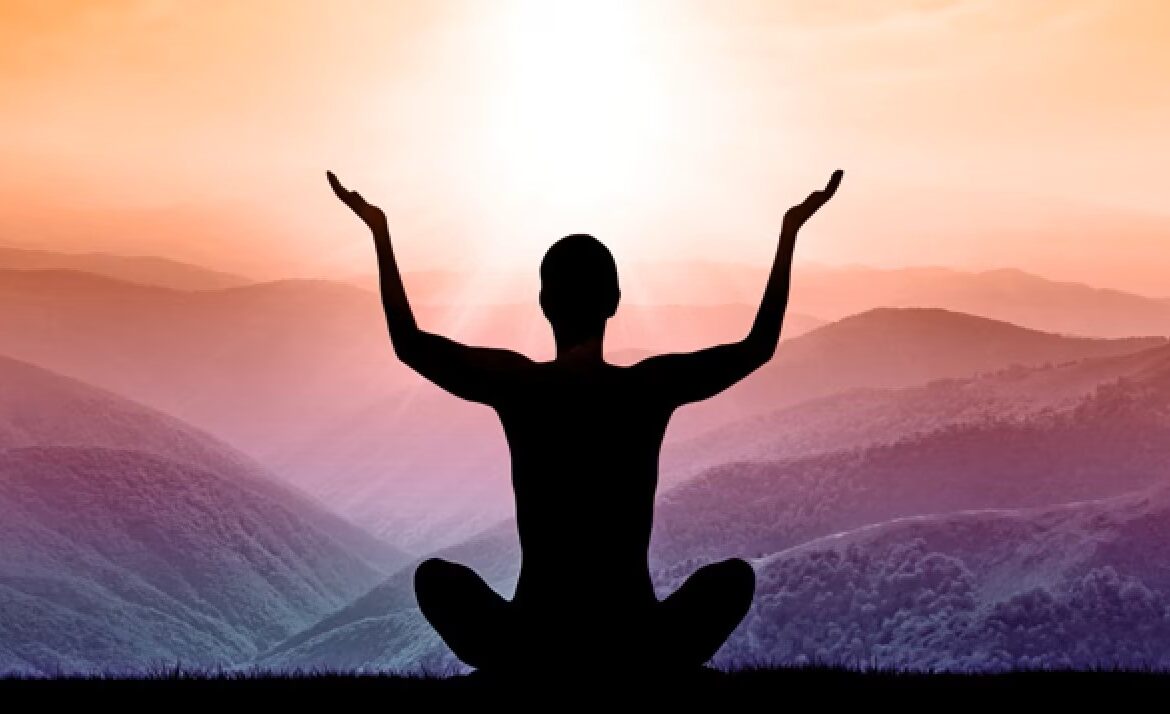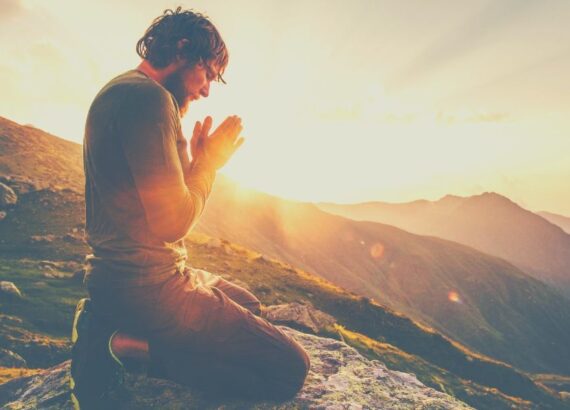What Is Spirituality According To God

What Is Spirituality According To God
Spirituality is a topic that has intrigued and inspired individuals throughout the ages. It encompasses the search for meaning, purpose, and connection to something greater than oneself. In this article, we delve into the concept of spirituality according to God. By exploring the divine nature, the role of faith, and the power of prayer and meditation, we aim to shed light on the profound impact spirituality can have on our lives. Additionally, we will examine the significance of love and compassion, how to live a spiritually aligned life, and the transformative journey of spiritual growth. Finally, we will discuss the ripple effect of spirituality on personal and collective well-being, highlighting its influence on mental health and our interconnectedness as human beings. Gain insights into the spiritual practices and principles that align with God’s teachings, and embark on a journey of self-discovery and enlightenment. Uncover the profound wisdom and guidance that spirituality offers.
1. Introduction to Spirituality
Defining Spirituality
Spirituality is like the Netflix subscription for your soul—an exploration of the deeper meaning and purpose of life. It goes beyond the surface-level distractions of our daily routines and dives into the age-old questions of who we are, why we’re here, and what’s the deal with airline food. Okay, maybe not that last one, but you get the idea.
Spirituality is the search for something greater than ourselves, an attempt to connect with the divine, the higher power, the universe, or whatever you want to call it. It’s about exploring the mystical, the intangible, and the unexplainable, all while wearing comfy pants and sipping herbal tea.
The Importance of Exploring Spirituality
You may be wondering, “Why should I bother with all this spirituality stuff?” Well, my friend, let me tell you—it’s like finding out there’s an all-you-can-eat buffet of self-discovery and personal growth waiting for you. By delving into spirituality, you can gain a deeper understanding of yourself, find meaning in the chaos of life, and maybe even unlock that secret cheat code for inner peace. And who doesn’t want that?
Spirituality also helps you cultivate compassion, gratitude, and a sense of interconnectedness with the world around you. It’s like upgrading from a flip phone to a smartphone—your perception of reality expands, and suddenly, you’ve got access to a whole new level of understanding and wisdom. So, grab a notepad and a sense of curiosity, because we’re about to embark on a spiritual journey together.

2. Understanding the Divine Nature
Exploring the Concept of God
Ah, God, the ultimate mystery wrapped in an enigma, sprinkled with a dash of divine intervention. Trying to define God is like trying to explain why socks magically disappear in the dryer—it’s a seemingly impossible task. But spirituality often involves grappling with this concept, trying to make sense of the infinite in our finite minds.
Some see God as an all-knowing, all-powerful being who keeps tabs on our every move like a cosmic Santa Claus. Others view God as more of a cosmic energy, an invisible force that permeates the universe. And then, of course, there are those who think God is just Beyoncé. Hey, whatever helps you sleep at night!
Divine Connection and Higher Power
Regardless of how you envision God, spirituality recognizes the idea of a higher power or divine presence that guides and supports us. It’s like having a celestial GPS that helps us navigate the twists and turns of life, reminding us that we’re not alone in this crazy, chaotic world.
This connection to a higher power can be experienced through moments of awe, deep meditation, or even a particularly delicious slice of pizza. It’s a reminder that we’re part of something greater, like a single puzzle piece in the grand cosmic puzzle of existence. So, let’s put on our detective hats and uncover the secrets of this divine connection.
3. Connection between Spirituality and Faith
Role of Faith in Spiritual Practice
When it comes to spirituality, faith is like the trust fall exercise you do at corporate team-building retreats. It’s the belief that there’s more to life than meets the eye, even when the evidence might suggest otherwise. Faith allows us to take that leap into the unknown, embracing the uncertainty and surrendering to the mysteries of the universe.
But here’s the thing—faith doesn’t have to be a rigid set of beliefs written in stone tablets. It can be fluid, flexible, and open to interpretation as a modern art exhibit. Spirituality encourages us to question, explore, and challenge our beliefs, ensuring that faith is a personal journey of growth and self-discovery.
Religion vs. Spirituality
Well, my friend, that’s like saying pizza is just another word for all food. While religion and spirituality can dance in the same ballroom, they certainly have their own dance moves.
Religion often provides a structured framework for spirituality, with prescribed beliefs, rituals, and communities. It’s like ordering the chef’s special tasting menu, complete with appetizers, main course, and dessert. Spirituality, on the other hand, is more like a buffet where you can mix and match, creating your own unique plate of beliefs and practices.
So, whether you’re religious, spiritual, or just really into pizza (because who isn’t?), the most important thing is to find what resonates with you and nourishes your soul.

4. Exploring the Role of Prayer and Meditation
The Power of Prayer
Ah, prayer—the original hotline to the Big Guy/Gal/Other. Whether you’re down on your luck, stuck in traffic, or desperately trying to resist the urge to hit the snooze button for the tenth time, prayer can be a powerful tool in your spiritual arsenal.
Prayer is like sending a cosmic text message to a divine customer service representative, pouring out your heart and soul (and maybe even throwing in a few emojis) in the hopes of receiving guidance, comfort, or that elusive Wi-Fi password for the universe. It’s a way to cultivate a deeper connection with the divine and surrender our worries and desires with a little help from above.
Benefits of Meditation in Spiritual Growth
Now, let’s talk about meditation—the practice that’s all the rage among spiritual gurus, stressed-out soccer moms, and anyone who’s ever tried to fold a fitted sheet. Meditation is like giving your mind a spa day, a chance to relax, recharge, and let go of all those pesky thoughts that keep you awake at night.
Through meditation, we can cultivate mindfulness, presence, and a sense of inner peace. It’s like pressing the pause button on the chaotic movie that is life and taking a moment to breathe, reflect, and refill our emotional popcorn buckets. So, grab your mental yoga mat and get ready to sit in the silence (or at least try to, because let’s face it, our minds are like monkeys on espresso).
In conclusion, spirituality is about diving into the big questions, exploring the divine, and finding meaning in this wild ride we call life. So, put on your spiritual hiking boots, and let’s embark on this adventure together, one question mark at a time.

5. Embracing the Power of Love and Compassion
The Role of Love in Spirituality
When it comes to spirituality, love takes center stage. Love is like the secret sauce that adds flavor and depth to our journey. It’s not just about romantic love or fuzzy feelings, but a profound connection to something greater than ourselves. Love fuels our spiritual growth, guiding us toward understanding, acceptance, and compassion. It’s the force that helps us rise above hatred, judgment, and fear, and allows us to embrace the beauty of unity and connection.
Cultivating Compassion for Self and Others
Compassion is the best sidekick to love in our spiritual quest. It involves extending kindness, understanding, and empathy to both ourselves and others. Self-compassion allows us to embrace our flaws and imperfections with gentleness, replacing self-criticism with self-love. When it comes to others, compassion helps us see beyond their actions or beliefs, and recognize their humanity. It reminds us that we are all on a unique journey, and kindness can be the key that unlocks doors to growth and transformation.
Incorporating Spiritual Principles into Daily Life
Spirituality isn’t just about lofty ideas or rare moments of enlightenment. It’s about weaving those principles into the fabric of our everyday lives. Living a spiritually aligned life means incorporating practices such as gratitude, mindfulness, and forgiveness into our daily routines. It means making conscious choices that reflect our spiritual values and beliefs. Whether it’s how we treat others, the impact we have on the environment, or the way we nourish our bodies, a spiritually aligned life is about living in harmony with our deepest truths.
Integrating Spirituality with Personal Values and Actions
Living a spiritual life isn’t about simply checking off a to-do list of spiritual practices. It’s about aligning our beliefs with our actions and values. It’s about walking the talk. When we integrate spirituality with our personal values, we become the embodiment of our highest aspirations. It’s not always easy, but by making conscious choices that honor our spiritual path, we create a life that feels authentic, fulfilling, and true to ourselves.
7. Nurturing Spiritual Growth and Transformation
Practices for Spiritual Development
Spiritual growth doesn’t happen overnight; it’s a journey that requires dedication, patience, and a willingness to explore. There are many practices that can nurture our spiritual development, such as meditation, journaling, prayer, or connecting with nature. These practices help us quiet the noise of the external world and tap into our inner wisdom. By making space for reflection and introspection, we create an environment that fosters spiritual growth and allows us to evolve into our best selves.
Overcoming Challenges in Spiritual Growth
While spiritual growth is rewarding, it’s not always smooth sailing. Challenges are an inevitable part of the journey, but they also offer valuable opportunities for growth. Doubts, setbacks, and moments of confusion are all part of the learning process. Embracing these challenges with curiosity and resilience allows us to deepen our understanding of ourselves and the world around us. It’s through navigating these obstacles that we find the strength to keep moving forward on our spiritual path.
8. The Ripple Effect of Spirituality on Personal and Collective Well-being
Spirituality and Mental Health
Spirituality has a profound impact on our mental well-being. When we cultivate a spiritual practice, we create space for inner peace, clarity, and emotional resilience. It provides us with a sense of purpose, grounding us in times of chaos and uncertainty. Spirituality can also foster a sense of connectedness, reducing feelings of loneliness and isolation. By nurturing our spiritual health, we can enhance our overall mental well-being and create a solid foundation for emotional balance and growth.
Spirituality and Interconnectedness
Spirituality reminds us that we are all interconnected, part of a greater tapestry of existence. It encourages empathy, compassion, and a deep appreciation for the interconnectedness of all beings. When we embrace spirituality, we recognize that our actions have a ripple effect and that every choice we make can impact the world around us. This awareness inspires us to cultivate kindness, respect, and love not only for ourselves but for all living beings. It encourages us to become active participants in creating a more harmonious and compassionate world.
In conclusion, understanding spirituality according to God offers us a pathway to find deeper meaning and purpose in our lives. It invites us to cultivate a connection with the divine, embrace faith, and engage in practices such as prayer and meditation. By nurturing qualities like love, and compassion, and aligning our actions with spiritual principles, we can lead a more fulfilling and purposeful existence. The journey of spiritual growth and transformation is not without challenges, but it ultimately leads to personal and collective well-being. As we embark on this spiritual journey, let us remember that the impact of spirituality reaches far beyond ourselves, creating a ripple effect that can positively influence the world around us.
FAQ
1. What is the difference between spirituality and religion?
Spirituality and religion are interconnected but distinct concepts. While religion often involves organized practices, rituals, and beliefs associated with a particular faith tradition, spirituality is a more personal and individualized experience. Spirituality focuses on the exploration of deeper meaning, connection with the divine, and inner growth, whereas religion encompasses a broader framework of shared beliefs, community, and religious institutions.
2. How can spirituality enhance my well-being?
Spirituality has the potential to enhance well-being by providing a sense of purpose, inner peace, and emotional resilience. It offers a framework for navigating life’s challenges, finding meaning in difficult circumstances, and cultivating a positive outlook. Spiritual practices such as prayer, meditation, and acts of kindness can also promote self-care, reduce stress, and improve overall mental and emotional health.
3. Can spirituality be practiced without religious affiliation?
Absolutely. Spirituality is not limited to any particular religious affiliation or belief system. It is a deeply personal journey that can be pursued by individuals with various religious or non-religious backgrounds. Spirituality allows individuals to explore their own understanding of the divine, connect with their inner selves, and find a sense of purpose and fulfillment, regardless of religious labels or affiliations.
4. How can I incorporate spirituality into my daily life?
Incorporating spirituality into daily life can be achieved through conscious intention and practice. Some ways to do this include setting aside time for prayer or meditation, engaging in acts of kindness and compassion, reflecting on personal values and aligning actions with them, practicing gratitude, and seeking moments of mindfulness and connection with the present moment. It is a personal journey, so it is important to find practices that resonate with you and bring a sense of spiritual connection and fulfillment.
Thank you for reading 🙂











